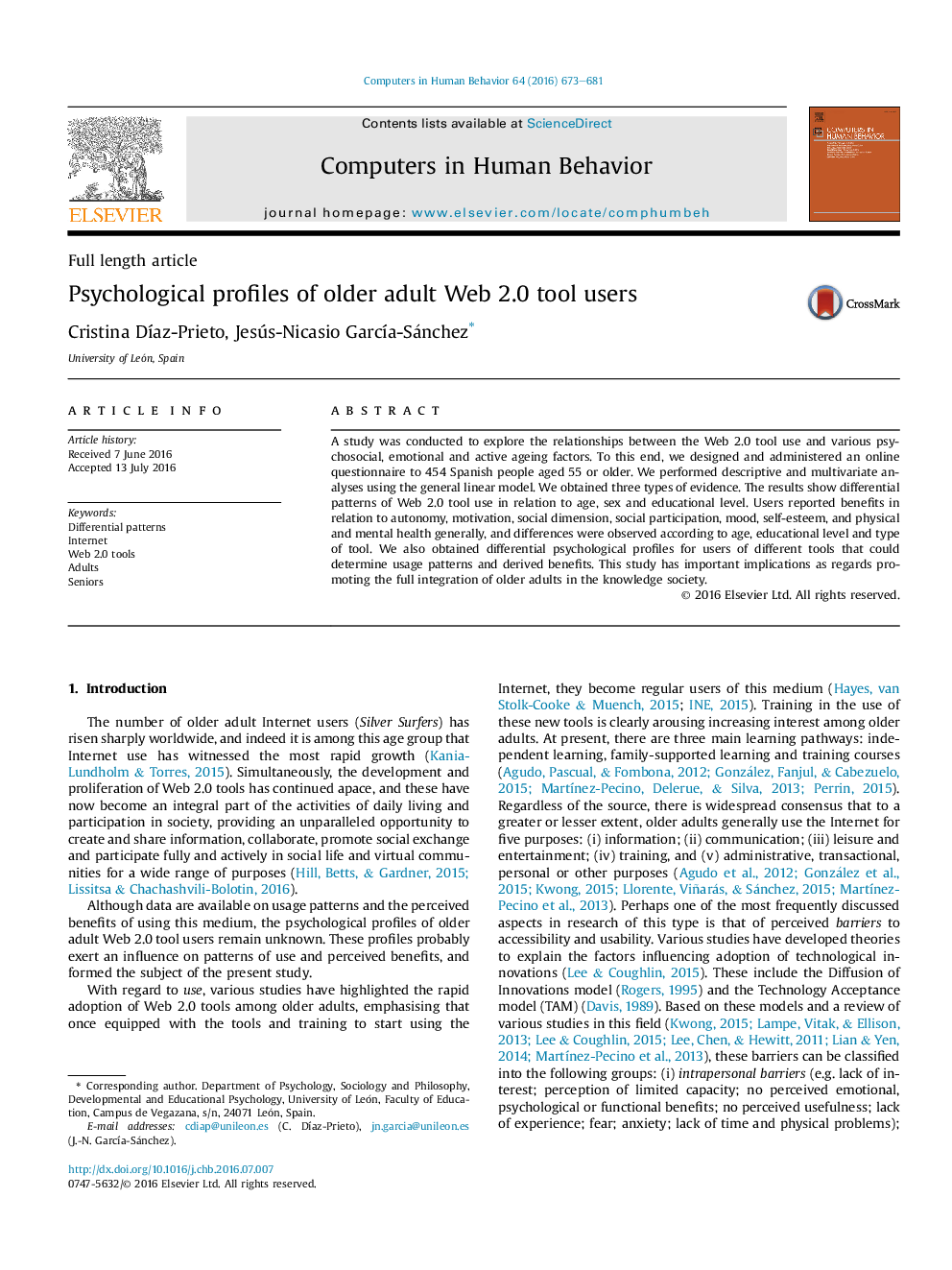| Article ID | Journal | Published Year | Pages | File Type |
|---|---|---|---|---|
| 6836662 | Computers in Human Behavior | 2016 | 9 Pages |
Abstract
A study was conducted to explore the relationships between the Web 2.0 tool use and various psychosocial, emotional and active ageing factors. To this end, we designed and administered an online questionnaire to 454 Spanish people aged 55 or older. We performed descriptive and multivariate analyses using the general linear model. We obtained three types of evidence. The results show differential patterns of Web 2.0 tool use in relation to age, sex and educational level. Users reported benefits in relation to autonomy, motivation, social dimension, social participation, mood, self-esteem, and physical and mental health generally, and differences were observed according to age, educational level and type of tool. We also obtained differential psychological profiles for users of different tools that could determine usage patterns and derived benefits. This study has important implications as regards promoting the full integration of older adults in the knowledge society.
Keywords
Related Topics
Physical Sciences and Engineering
Computer Science
Computer Science Applications
Authors
Cristina DÃaz-Prieto, Jesús-Nicasio GarcÃa-Sánchez,
